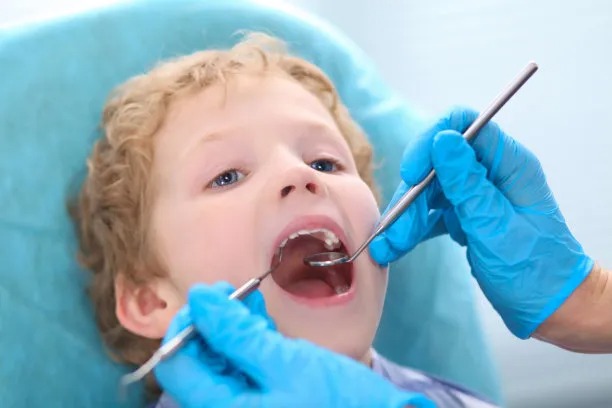Summary: Periodontal disease is a significant oral health issue that can adversely affect overall health. This article highlights the connections between periodontal disease and systemic health problems, emphasizes the importance of effective management, and outlines preventative strategies to mitigate risks. By exploring the intricate interactions between gum health and overall well-being, we aim to provide comprehensive insight into the management of periodontal disease. Moreover, practical strategies for prevention are presented to empower individuals in maintaining optimal oral health, ultimately enriching their overall quality of life.
1. Understanding Periodontal Disease and Its Causes

Periodontal disease, often referred to as gum disease, encompasses a range of inflammatory conditions affecting the tissues surrounding the teeth. The primary cause of this disease is the accumulation of plaque, a sticky film of bacteria that forms on teeth. If not adequately managed with regular brushing and flossing, this plaque can harden into tartar, leading to inflammation and infection.
Additional risk factors contribute to the development of periodontal disease. These include poor oral hygiene, smoking, genetic predisposition, and certain medical conditions such as diabetes. Understanding these factors is crucial for both prevention and treatment, as individuals with increased susceptibility can implement targeted strategies.
The systemic implications of periodontal disease are alarming. Research indicates a strong correlation between periodontal disease and cardiovascular diseases, diabetes, and respiratory problems. Thus, recognizing the importance of maintaining gum health not only helps the mouth but is integral to overall health as well.
2. The Impact of Periodontal Disease on Systemic Health
One of the most alarming effects of periodontal disease is its impact on cardiovascular health. Studies have shown that individuals with gum disease are at a higher risk of heart disease. This relationship may stem from bacteria in the mouth entering the bloodstream, leading to systemic inflammation and contributing to arterial plaque formation.
Furthermore, individuals with diabetes face a dual risk. The presence of periodontal disease can complicate diabetes management, while uncontrolled diabetes can exacerbate gum inflammation. This cyclical relationship can lead to significant health challenges, making it essential for patients to prioritize oral health.
Respiratory diseases are another health concern linked to periodontal disease. Bacteria from the oral cavity can be aspirated into the lungs, causing infections such as pneumonia. This connection highlights the fundamental role of oral hygiene, particularly in vulnerable populations like the elderly or individuals with pre-existing respiratory problems.
3. Strategies for Effective Management of Periodontal Disease
The management of periodontal disease typically begins with professional dental cleanings and examinations. Dentists can help remove plaque and tartar build-up and assess overall gum health through thorough examinations. Early detection and treatment are key to minimizing damage.
Maintaining excellent at-home oral hygiene is also essential. Brushing at least twice a day with fluoride toothpaste, flossing daily, and using mouthwash can significantly reduce plaque accumulation. Patients should also consider investing in an electric toothbrush, which may provide a more effective clean compared to manual brushing.
Additionally, lifestyle modifications can be highly beneficial. Quitting smoking, adhering to a balanced diet rich in vitamins and minerals, and managing stress through mindfulness practices can all contribute to improved gum health and a stronger immune response against infections.
4. Prevention Techniques for Periodontal Disease
Preventing periodontal disease necessitates a proactive approach toward oral hygiene. Regular dental check-ups, ideally every six months, allow dental professionals to catch early signs of gum disease and provide timely interventions. Patients should not wait for symptoms to manifest before seeking dental care.
Educational programs that promote awareness about the importance of oral health can significantly influence preventative behaviors. Workshops, community programs, and school-based initiatives can empower individuals to adopt improved oral hygiene practices from an early age.
Moreover, utilizing advanced technologies such as antibacterial mouth rinses or oral probiotics may further enhance periodontal defense. These innovations can help maintain a balanced oral microbiome, which is vital for gum health and can aid in preventing the onset of periodontal disease.
Summary:
In conclusion, understanding the multifaceted impact of periodontal disease on overall health underlines the importance of maintaining optimal oral hygiene. The interconnectedness of oral health with systemic conditions necessitates effective management and prevention strategies that empower individuals. Through education, proactive dental care, and lifestyle adjustments, it’s possible to mitigate risks associated with periodontal disease and improve both oral and overall health.
This article is compiled by Vickong Dental and the content is for reference only
Vickong Dental
Vickong Dental is a large medical group established in Hong Kong in 2008 by professors from well-known medical universities in Guangdong and Hong Kong, as well as medical doctors from key national '985' universities (including Master's supervisors and senior professors). The chain of branches brings together expert dentists with PhDs and Master's degrees from Hong Kong and Mainland China, committed to providing high-quality dental treatment.
"Vickong Dental Practices the University Motto of 'Healing and Serving Society,' with a Stable Operation for Sixteen Years. It Has Been honored with Hong Kong Enterprise Leaders's Choice,' and is a Global Trusted Implant Center for the Nobel Implant System. Recommended by Hong Kong Metro Broadcast and Guangdong Television, it Serves Customers from Over Thirty Countries and Regions, Gaining the Trust and Favor of Citizens from the Guangdong-Hong Kong-Macau Greater Bay Area and Surrounding Cities.

Thousands of customers' unanimous praise
The most recognized and highly recommended dental service by customers in the Guangdong-Hong Kong-Macau Greater Bay Area
We Ensure You Receive Detailed Care and Attention Here
Hong Kong standards, Shenzhen prices, Your Trusted English-speaking dentists

Vickong Dental Medical-Grade Instrument Disinfection Process
Vickong Dental Medical-Grade Instrument Disinfection Process

Vickong Dental Chain: A Warm and Comfortable Environment for Treatment






Appointment Hours

Q&A
Why choose Vickong Dental?
Vickong Dental practices the university motto 「Medicine to Benefit Society」, with each branch bringing together highly qualified dentists with doctoral and master’s degrees from Hong Kong and the Mainland, and has maintained seventeen years of steady operation。Recipient of 「2024 Hong Kong Enterprise Leaders Brand」, 「2025 Hong Kong Enterprise Leaders Brand」, a Nobel Biocare Global Trusted Implant Center, and a brand recommended by Metro Radio Hong Kong and Guangdong TV。
To date, we have served customers from more than thirty countries and regions,earning exceptionally high word-of-mouth recognition and trusted recommendations from residents across the Guangdong-Hong Kong-Macao Greater Bay Area and surrounding cities
We have eight major branches in Zhuhai、Shenzhen,and a consultation and service assurance center in Hong Kong,so you can book a free consultation at any time for any questions,which is very reassuring.
If I do not accept the quotation after the CT scan, will I be charged??
No! As long as the actual treatment has not started, you will not be charged any fees.
Will there be any additional charges during the treatment process?
No, there won’t be any additional charges. Before treatment begins, we will clearly explain the treatment plan and its corresponding fees. Only after the patient agrees and signs the consent form will we proceed with the dental service.
Can I pay in Hong Kong dollars?
Yes. Vickong Dental accepts payment in Hong Kong dollars. The amount will be converted based on the exchange rate of the day, and the applicable rate will be clearly communicated to you in advance.
Can I reschedule my appointment at any time?
Yes. Please contact us via **WeChat** or **WhatsApp** as early as possible, providing your original appointment time and details, along with your preferred new date and time slot for rescheduling.













